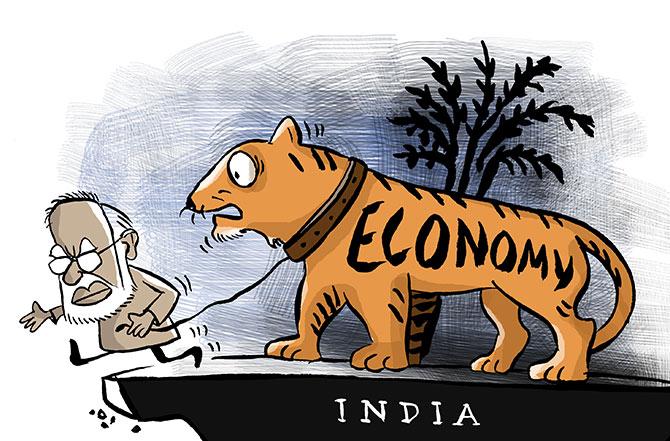Going forward, the February factory output may be impacted as several industries such as automobiles, technology, pharma and fashion have some exposure to imports of raw and intermediate materials from China.

India's factory output showed a marginal rise in January, while retail inflation eased to a two-month low in February, paving the way for RBI to cut interest rate to boost the economy that may be losing steam due to the coronavirus outbreak.
The Index of Industrial Production (IIP) grew by 2 per cent in January against 1.6 per cent a year back, displaying moderate green shoots, official data released on Thursday showed.
According to the data from the National Statistical Office (NSO), the manufacturing sector output grew by 1.5 per cent as compared with a rise of 1.3 per cent in the corresponding month a year ago.
However, going forward, the February factory output may be impacted as several industries such as automobiles, technology, pharma and fashion have some exposure to imports of raw and intermediate materials from China.
Retail inflation eased to 6.58 per cent in February, from 7.59 per cent in the previous month, but remained above the Reserve Bank of India's target band of 4 per cent, plus or minus 2 per cent.
Manufacturing, which is the largest component of IIP having 77.6 per cent weight, continues to be down.
It grew at 1.5 per cent in January 2020 and just 0.3 per cent for the first 10 months of current fiscal.
As per use-based classification, out of six sectors four -- namely capital goods, infrastructure/construction goods, consumer durables and consumer non-durables -- recorded negative growth in January 2020.

CPI inflation in February reversed six months of increasing trend mainly due to base effect and sequential decline in food price inflation as well as a dip in transport and communication inflation.
Core inflation, a measure of demand conditions in the economy, also reversed after increasing for three months and came in at 4.08 per cent in February.
Between Q1 FY19 and Q3 FY20, core inflation declined to 3.6 per cent from 6.2 per cent and GDP growth declined to 4.7 per cent from 7.1 per cent.
"The news of improvement in industrial activity in January and ease in inflation in February comes as a relief amid the epidemic crisis and economic slowdown and global health crises.
“The data does not capture the impact of the sharp decline in oil prices on inflation is not captured either," said Rumki Majumdar, economist, Deloitte India.
With the epidemic spreading fast in Europe and the US, a slowdown in these economies will impact the global demand for industrial and manufactured goods.
"However, one can only hope that inflation may come down further in March as oil prices are expected to remain low for a while now.
“This opens up room for further monetary policy stimulus.
“The RBI may cut policy rates in the upcoming MPC meeting as a pre-emptive measure to offset the impact of the epidemic on demand," Majumdar said.
The factory output growth even during FY19 was weak but it remained in the positive territory and averaged 3.8 per cent.
In FY20, however, the variation in the factory output growth has increased and is fluctuating between positive and negative territory quite frequently, demonstrating that instability in the factory output has increased.

India Ratings and Research (Ind-Ra) said a sustained weakness in factory output month after month means that recovery on the industrial front is unlikely in the near term and now with the adverse impact of Covid-19 looming large it will get more prolonged.
India Ratings said globally a number of economies have either given or planning to give both monetary and fiscal stimulus to overcome this crisis.
Some impacts such as the collapsed global crude prices may be favourable for India and boost consumer demand and also impact central government fiscal arithmetic positively, as excise duty on oil products is now a specific duty.
"However, many states have increased VAT on petroleum products and this may limit the pass-through to the consumers.
“However, India has limited monetary and fiscal space to provide stimulus though it is needed to address the demand side issues," it said.










